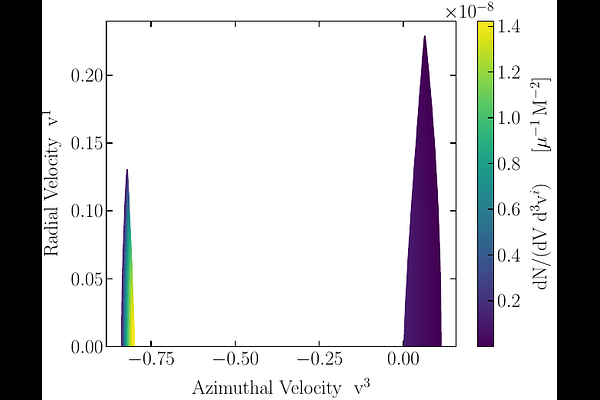A fully relativistic treatment of EMRIs in collisionless environments

A fully relativistic treatment of EMRIs in collisionless environments
Rodrigo Vicente, Theophanes K. Karydas, Gianfranco Bertone
AbstractFuture mHz gravitational wave (GW) interferometers will precisely probe massive black hole environments, such as accretion discs, cold dark matter overdensities, and clouds of ultralight bosons, as long as we can accurately model the dephasing they induce on the waveform of extreme mass-ratio inspirals (EMRIs). Most existing models rely on extrapolations from Newtonian results to model the interaction of the small black hole in an EMRI system with the environment surrounding the massive black hole. Here, we present a fully relativistic formalism to model such interaction with collisionless environments, focusing on the case of cold dark matter overdensities, like 'spikes' and 'mounds'. We implement our new formalism in the FastEMRIWaveforms framework and show that the resulting waveforms are significantly different from those based on a Newtonian treatment of environmental effects. Our results indicate that a fully relativistic treatment is essential to capture the environmental dephasing of GW signals from EMRIs accurately.